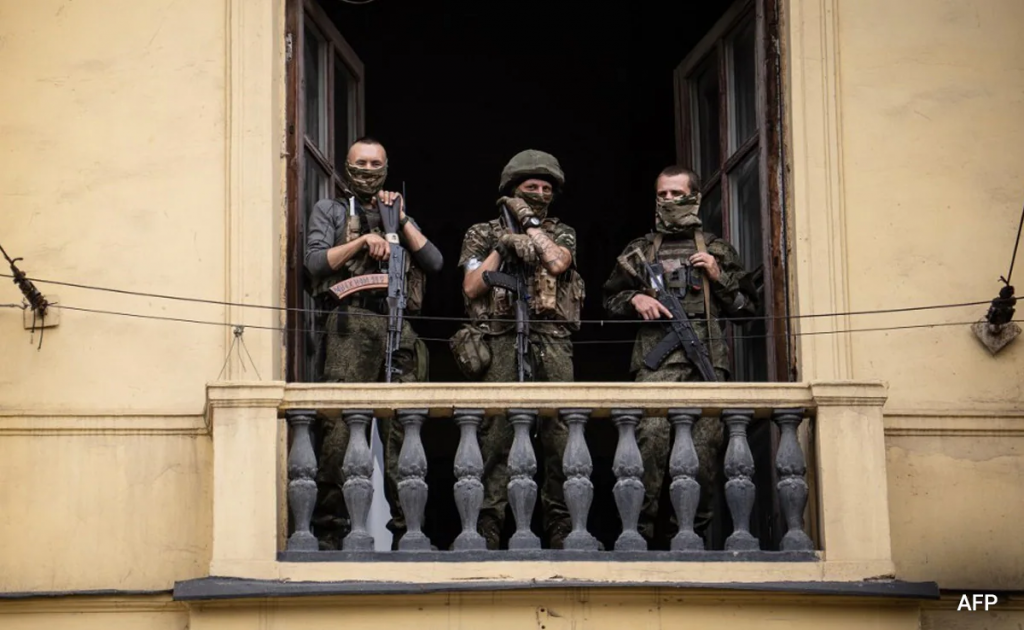
Introduction
In a startling turn of events, the Wagner Group, a notorious private military contractor with alleged ties to the Russian government, is now facing an unprecedented mutiny within its ranks. This development has sent shockwaves throughout the international community, raising concerns about the group’s loyalty and the potential implications for global security. In this article, we delve into the recent updates surrounding the Wagner Group mutiny against Russia, shedding light on the circumstances, motives, and potential consequences of this unprecedented event.
The Wagner Group: An Overview
Before we dive into the details of the mutiny, it is essential to understand the Wagner Group’s background and its association with the Russian state. The Wagner Group is a shadowy organization consisting of mercenaries and military contractors. Though it operates as a private entity, it has long been suspected of having close ties to the Russian government and its intelligence agencies.
The Mutiny Unveiled
On June 24, 2023, reports began to emerge, indicating a significant uprising within the Wagner Group’s ranks. The exact catalyst behind this mutiny remains unclear, but it appears to be a culmination of several underlying factors. Dissatisfaction among Wagner Group members has been brewing for some time, fueled by a combination of grievances ranging from inadequate compensation to perceived mistreatment by their superiors.
Motives and Grievances
While precise details of the mutiny’s motives are still emerging, several key grievances have come to light. Among them are:
1. Compensation Disparity
One of the primary concerns voiced by Wagner Group personnel is the significant disparity in compensation between the rank-and-file members and their superiors. Many mercenaries argue that their sacrifices and risks are not being adequately rewarded, leading to frustration and disillusionment within the ranks.
2. Unsafe Working Conditions
The hazardous nature of the assignments undertaken by the Wagner Group is another cause for dissatisfaction. Contractors often find themselves in dangerous conflict zones without sufficient protection or support, exacerbating the sense of neglect among the mercenaries.
3. Lack of Transparency
The secretive nature of the Wagner Group’s operations has also been a bone of contention among its members. The lack of transparency regarding the group’s objectives, affiliations, and decision-making processes has fostered an environment of distrust and suspicion.
4. Questionable Morality
Some mutineers have expressed moral concerns regarding the group’s activities. The Wagner Group has been linked to controversial operations in various conflict zones, raising questions about the ethical implications of its actions.
Consequences and Implications
The mutiny within the Wagner Group carries significant consequences for both Russia and the broader international community. Here are some potential implications:
1. Internal Instability in Russia
The mutiny exposes internal divisions within the Russian military and intelligence apparatus. This uprising suggests a breakdown in the chain of command and erodes confidence in the authorities’ ability to maintain discipline and loyalty among their military contractors.
2. Geopolitical Ramifications
The Wagner Group has been implicated in numerous operations abroad, often aligning with Russia’s interests. The mutiny could disrupt ongoing operations and weaken Russia’s influence in certain regions, potentially altering the geopolitical landscape.
3. Security Concerns
The rebellion within the Wagner Group raises concerns about the security and stability of conflict zones where the group is active. The potential power vacuum created by the mutiny may pave the way for rival factions or extremist groups to exploit the situation, leading to further violence and instability.


